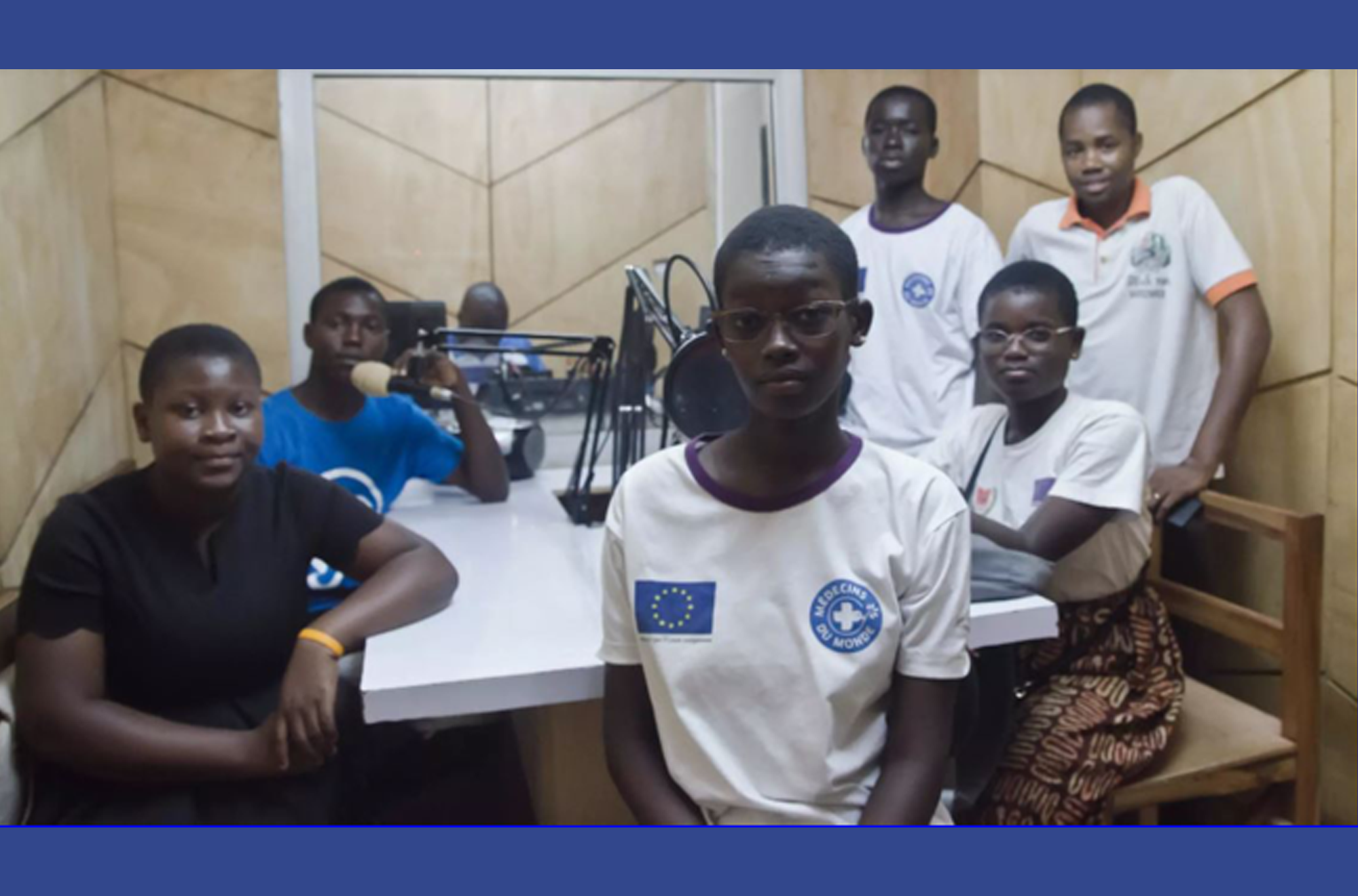
As voluntary termination of pregnancy remains prohibited in Côte d’Ivoire except in cases of rape or incest, clandestine abortion is common. Those in school are particularly affected. The NGO Médecins du Monde estimates that 76% of Ivorian women who terminate their pregnancy are still in school.
Bernadette Oupoh, affectionately called “Maman Oupoh” (pictured above), has an office that provides the secretariat for the town hall, and also gathers women who need someone to confide in. She is the president of the Namané Coalition (“Let’s take conscience”), a group of associations and civil society organisations committed to the reduction of unwanted pregnancies, particularly among adolescent girls and those still in school.
Some 290,000 Ivorian women voluntarily terminate their pregnancies each year. Illegal abortion is punished by six months to three years in prison, but it is above all the taboo that weighs the most in the society, despite the serious health consequences. “In the community, apart from a few people who talk to their daughters, abortion is rarely talked about because of religious beliefs, a midwife from Soubré reports. “There is a great risk of bleeding, as they use rods or other inappropriate techniques. I remember the case of a young lady in Abidjan who had to have her uterus completely removed.” Death remains the most serious consequence, however, in a country where the UN Development Programme estimates that for every 100,000 births, more than 600 Ivorian women die in childbirth, some of which is from unsafe abortions. That is almost three times more than the average for developing countries.
Faced with the impossibility of approaching the subject of abortion in society, the population of Soubré decided to carry out prevention education on sexual health. There are adult referents, called the Tontons and the Tatas, who make themselves available to address these questions. Youth are also mobilising. At La Voix de la Nawa radio, high school students come every week to host programmes on the theme, in order to advise listeners and tell them what mistakes to avoid. These schoolchildren call themselves the Young Ambassadors:
“We organise educational talks. We go to a neighbourhood and bring together about 20 young people. After choosing a theme, we use a picture box to illustrate the issues. Sometimes some young people accuse us of talking about things only adults can do, but most of the time they are receptive and the message of prevention gets through.”
The Young Ambassadors was set up in 2016 by Médecins du Monde when surveys showed that 85% of those who have unsafe abortions are under the age of 18.
Côte d’Ivoire has signed and ratified the Maputo Protocol but the State has never fully applied it. There is no specific law on sexual and reproductive health, despite the proposal of a draft law in 2016, which was never adopted due to opposition from religious and community leaders.
SOURCE: RFI, 24 May 2021 + PHOTO of Young Ambassadors, by © Sidy Yansané ;
EN FRANÇAIS: audio and podcast versions of the report also available at the same RFI link.



